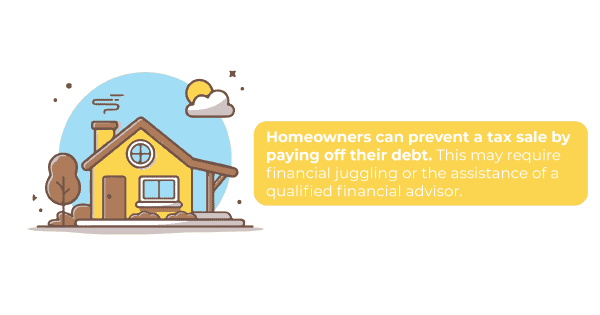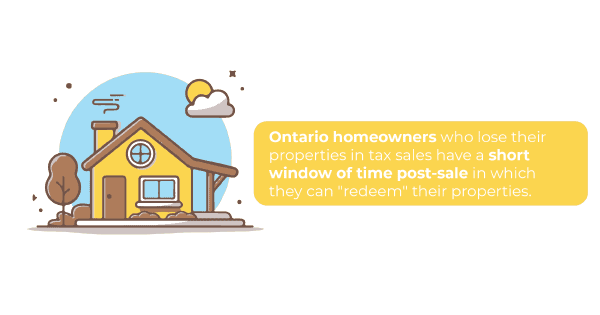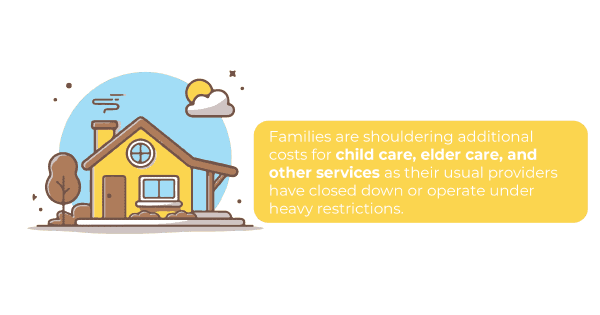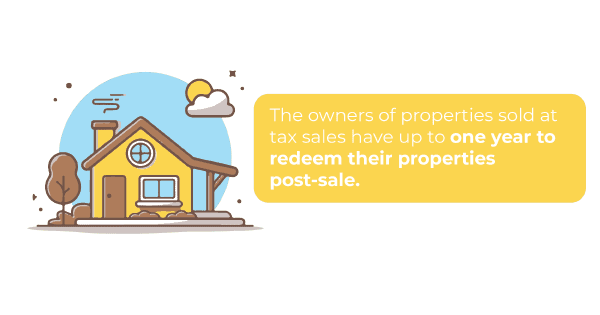The cost of buying property in Ontario is skyrocketing. In the last year alone, prices have gone up between 22 and 50 percent across the region. While residential sales have also increased, the hike in pricing has put property out of reach for many would-be buyers.
As a result, some buyers have begun exploring Ontario tax sales. Tax sales offer a unique opportunity to secure affordable property in a high-demand region. But they are not without their complications.
Keep reading now to learn the advantages and disadvantages of using tax sales to buy cheap land for sale in Ontario.
What Are Ontario Tax Sales?
When a property owner in Ontario fails to pay their taxes for an extended period of time, they set in motion a distinct chain of events.
First, interest and fees on their unpaid taxes begin to accumulate. When the total cost of unpaid taxes, interest, and fees becomes high enough, the county treasurer will place a tax lien on the property. Once that happens, owners cannot sell or transfer ownership of the property unless:
- They pay off the outstanding debt
- The new owner agrees to take on the outstanding debt
If the debt accumulates and goes unpaid for three or more years, municipal authorities may act on their right to sell the property via a tax deed sale. When this happens:
- The municipality sells the property for the total amount of back taxes and fees owed
- All mortgages and other interests in the property except for Crown interests become null and void
- Pre-existing owners lose their rights to the property if they do not redeem it during the redemption period by paying their debts or qualifying for an exemption
Ultimately, then, tax sales in Canada provide an opportunity for buyers to purchase property for far less than its market value.
How Can Homeowners Avoid Tax Sales?
In general, property owners seeking to avoid or prevent tax sales have four options.
First, they may be able to prove that:
- They have in fact paid their taxes
- They are exempt from the taxes in question
- There has been some clerical or accounting error and they do not owe as much as the record shows
In any of these cases, once the tax record is updated, they will be free and clear.
Second, homeowners can prevent a tax sale by paying off their debt. This may require financial juggling or the assistance of a qualified financial advisor.
Third, homeowners can appeal to the municipality for an exemption or extension. Municipalities are most likely to grant these when property owners can show that there is some valid reason why taxes have not been paid.
For example, the property may belong to an elderly individual with dementia who was incapable of managing their finances. Or clerical or mailing errors may have resulted in one or more property owners being unaware of the tax delinquency.
In such cases, property owners may be able to argue that they should get additional time to pay off their debt. Ultimately, however, they will have to bring their accounts into balance in order to keep the property.
Fourth, property owners may be able to convince an invested third party to pay their delinquent taxes for them. The most common example of this is mortgage lenders agreeing to pay back taxes.
If the property goes to a tax sale, the lender will lose all the income they otherwise stand to gain from the homeowner's mortgage. As a result, lenders are sometimes willing to work out arrangements in which they pay back taxes so that homeowners can keep their properties as this serves the lender's financial interests long-term.
Can Homeowners Get Property Back After a Tax Sale?
Ontario homeowners who lose their properties in tax sales have a short window of time post-sale in which they can "redeem" their properties. As a rule, they can redeem their properties in the same ways they can prevent a sale:
- Prove there was an error and no back taxes were owed
- Prove there was a valid reason for failure to pay and receive an exemption
- Pay their back taxes and fees themselves
- Convince a third party to pay their back taxes and fees for them
Per tax sale rules, however, once the redemption window has closed the original homeowners no longer have any recourse and may not get their property back.
How Has COVID 19 Affected Tax Sales Across the Country?
The coronavirus pandemic has had a deep impact on residential real estate nationwide.
Over three million Canadian workers lost their jobs in the first few months of the pandemic alone. Nearly 20 percent of those still employed suffered steep pay cuts. Millions of Canadians now work fewer than half of their formerly standard hours.
More than 10 percent of Canadian companies froze or delayed:
- Benefits
- Bonuses
- Compensation
At the same time, families are shouldering additional costs for child care, elder care, and other services as their usual providers have closed down or operate under heavy restrictions.
These financial complications leave many property owners unable to meet their tax obligations. A single year of tax delinquency, of course, is not enough to make a property eligible for tax sale.
For many homeowners, however, the stresses of the pandemic were enough to push them into their third or subsequent year of delinquency or to derail their plans to get current on taxes. This created a flood of land for sale in Ontario for unpaid taxes. Chapple and Stone Mills, both lovely and quaint municipalities in Ontario, are among the areas hardest hit.
Buyers interested in exploring tax sales can find a tax sales guide and a complete list of properties online.
What Are the Advantages of Tax Sales?
The primary advantage of tax sales is that they enable buyers to acquire properties for pennies on the dollar. It is not uncommon for homes with market values around $300,000 to sell for only a few thousand at a tax sale.
This provides buyers with enormous opportunities. They can buy into appealing areas all throughout the country, and into desirable homes that they might otherwise not be able to afford. If they flip the homes and re-sell them for their market value, they can make hundreds of thousands of dollars in profit overnight.
The second big advantage of tax sales is that all non-Crown interests in a property, such as mortgages, end upon tax sale. This means that buyers do not have to:
- Pick up the previous owner's mortgage with all its terms and requirements
- Pay the full value of the property in any way
- Deal with complicated previous ownership situations
For buyers with the cash to acquire these homes and the risk tolerance necessary to endure the redemption period, they can be a fantastic investment.
What Are The Disadvantages of Tax Sales?
For all their benefits, tax sales are not without their disadvantages. These include:
- Statutory homeowner redemption periods
- Potential liens on the property
- Legal requirements that some properties carry
- Inability to inspect the property
- Potential occupants
- Limited mortgage availability
Statutory Homeowner Redemption Periods
The owners of properties sold at tax sales have up to one year to redeem their properties post-sale. During this time:
- The original owners retain their right to keep living in the home
- Buyers' ability to alter or sell the property is limited
- Buyers are responsible for the taxes and other expenses associated with the property
Should the original owner come up with the money to pay off the taxes, fees, interest, and other qualifying expenses, the buyer must accept the money and relinquish ownership of the home.
Potential Liens on the Property
Unlike privately held mortgages, mortgages and liens held by or in favour of Crown agencies do not disappear as the result of a tax sale. Thus, if the property is subject to liens by the Business Development Bank, the Canada Revenue Agency, or other qualifying parties, buyers might need to pay additional costs to get the deed to the property free and clear.
Other complications may also apply, including:
- Easements
- Restrictive covenants
- Adverse possession
Importantly, the law does not require municipalities to make this information available at the time of sale. The responsibility to investigate these situations lies with buyers.
Legal Requirements
Some properties carry legal requirements that buyers assume with purchase. For example, home buyers who purchase environmentally contaminated property become legally responsible for:
- Mandated clean-up efforts
- All costs associated with such efforts
- All legal penalties imposed as the result of failure to do so
Inability to Inspect the Property
Buyers have no right to inspect a property prior to the tax sale. Nor can they require that the property be inspected by a third party. They must base their purchase decisions on publicly available information and buy homes "as-is."
Potential Occupants
Properties purchased at tax sale may be occupied by:
- The previous owners
- Persons permitted to live there by the previous owners
- Squatters
In any case, the law does not automatically require that these persons leave the property. In the case of previous owners, their presence is even legally protected during the statutory homeowner redemption period.
Buyers who wish to evict existing residents when they take full possession of the property must go through the appropriate legal proceedings to do so.
Limited Mortgage Availability
Buyers may face difficulty in securing a mortgage for a tax sale property. This is because:
- Properties often sell at prices below minimum mortgage thresholds
- Lenders may be averse to the risks associated with tax sale properties
- Buyers cannot provide lenders with inspection reports and other key information typically required to secure a mortgage
Understanding Canadian Real Estate
Understanding Ontario tax sales is an important step in mastering the Ontario real estate market and making smart financial choices. Learn more about homebuying and real estate law by checking out the other great articles on our blog today.





